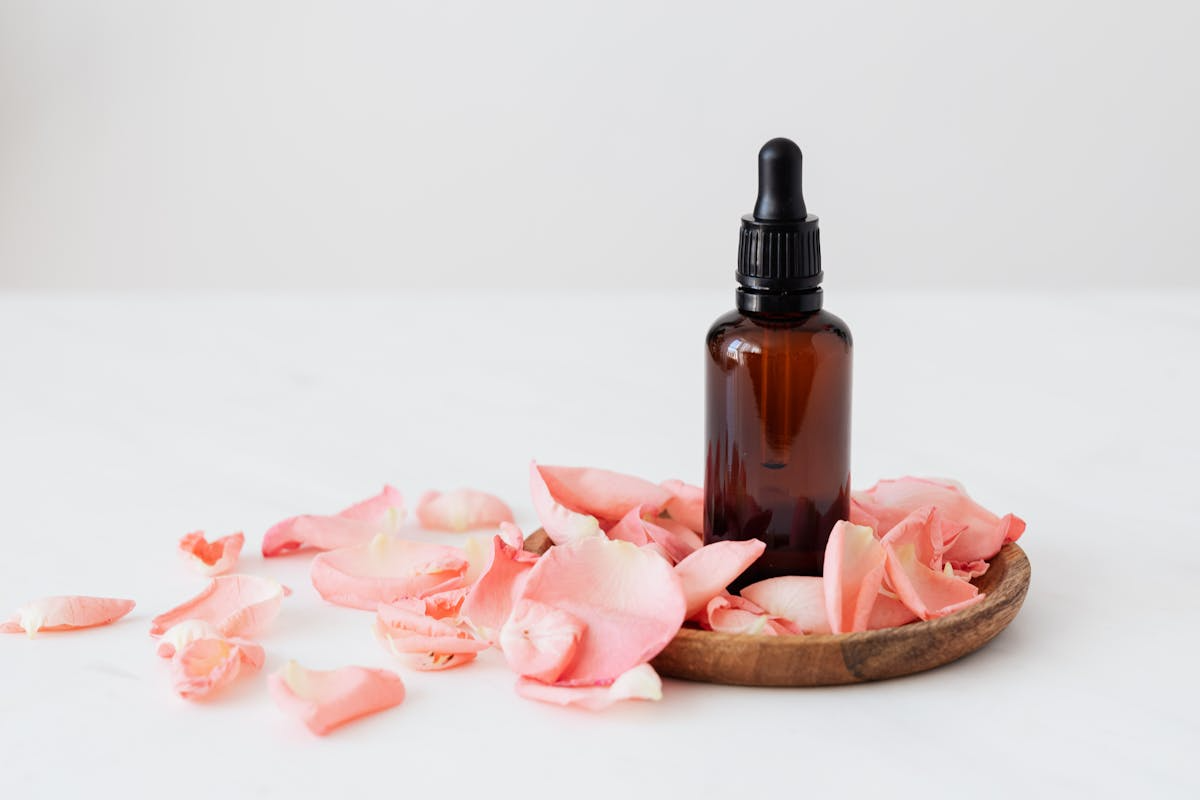When It Comes To Your Liver, Sugar is not Sweet.
As added sugars, especially fructose, increase in food supply, so does liver cell damage. Unlike glucose, which is metabolized by most cells in the human body, fructose is metabolized primarily by the liver. Another reason why fructose is particularly problematic is that it is the sweetest tasting natural sugar, 1.2–2.0 times sweeter than table sugar.
Our gut microbiome is a collection of bacteria, archaea and eukarya colonizing our gastro-intestinal tract. Our gut microbiome plays a significant role in our health. In the digestive tract, excessive dietary sugars can alter our gut microbiome. This may cause an imbalance in the microbiome leading to a range of health conditions. The liver is directly linked to the intestines and is a major site for the detoxification of microbial waste products. If the microbial imbalance leads to an increase in waste products entering the liver, the amount of waste removal the liver must undertake may surpass the liver’s cleanup mechanisms. When this happens your liver cells become damaged.
Overconsumption of added sugars can affect more than your liver. Your brain, adipose tissue, skeletal muscles, and pancreas may be affected as well. In a circle of event, the impact of sugar on these organs may lead to liver cells being damaged and fatty liver.
Added sugars have habit-forming properties like alcohol, tobacco, cocaine, and caffeine. They stimulate the reward pathways in our brain through an intense dopamine release. This makes us more susceptible to the pervasiveness of added sugar.
Our food industry is becoming more saturated with appetizing and potentially addictive products containing added sugars. Sugar is not only used as a caloric sweetener but also as a bulking and browning agent, humectant, texture modifier, fermentation substrate, and preservative. As a result, added sugars are a ubiquitous component of processed foods and beverages.
There are myriads of synonyms for ‘sugar’ used on nutrition labels. This is an attempt to disguise the total sugar content in food products, making efforts to reduce consumption challenging.

Break Free of the chains that bind you in a state of ill health
If you have been caught in the added sugar web, SelfCare is encouraging you to make some lifestyle changes. While it may not be possible for you to tell the food industry what they need to do, your conscious decision to eat to as close to ‘nature’ as is possible will make the statement they may not want us to verbalize. Avoid giving your children juices with added sugars or too concentrated fruit juices since these are habit forming.
There is a distinction between fruits, which naturally contain glucose and fructose, and processed foods with added sugar. Despite their sweet taste, fruits contain relatively low amounts of simple sugars compared to processed foods. Additionally, whole fruits contain fiber and antioxidants, which may protect against the harmful metabolic effects of sugar consumption.
Sugar is not as sweet as we perceive it to be. There are many ills associated with overindulgence. Fatty liver, obesity, type 2 diabetes, metabolic syndrome, cardiovascular disease and advance liver conditions such as cirrhosis are only few of the bitter after taste of added sugars.

Nature Provides Herbs For Your Healing.
SelfCare Activity
- Why is fructose more concerning than other sugars?
- Added sugars can affect your liver. What other organs may be impacted by added sugars?
- What steps can you and your family take to avoid added sugars.
- Here are some sugar names – brown sugar, corn sweetener, corn syrup, high-fructose corn syrup, fruit juice concentrates, malt sugar, molasses, dextrose, fructose, glucose, lactose, maltose, and sucrose. Try and identify these on labels in your kitchen cupboard.
An Uptick in Cancers, Blood Clots and Heart Issues; We All Are At Risk.
“You Live or Die by your Immune System”
Dr. Patrick Soon-Shiang
According to Dr Patrick Soon-Shiang, there is a surge of cancers in children and young healthy adults e.g., colon and pancreatic cancers. [Other medical scientists speak of an increase in all-cause mortality and autoimmune diseases]. This is noted post pandemic. These conditions are believed to be not only related to the counter measures employed during the pandemic but are associated with the virus itself which suppresses our natural killer cells called T cells. The findings suggest that both those to whom the counter measures were administered and those who refused the counter measures are at serious risk. The answer to mitigating the risks of cancers, blood clot, autoimmune diseases, and heart conditions related to the Covid-19 virus is to clear the virus from the body, reiterate Dr. Soon-Shiang. Clearing the virus will resolve any chronic inflammation the virus is causing. The Covid virus, he said, is immunosuppressive like cancer.
Your T cells are part of your immune system. Their main role is to help protect your body from infection and help fight cancers. T cells are sometimes called T lymphocyte and thymocyte. It is the role of your T cells to remove the virus from your body.
According to Dr. Soon-Shiang, if the spike protein breaks off the counter measures employed there is cause for concern, as the spike protein acts as the virus itself. The most saddening thing is that the counter measures employed do not remove the virus from the body.
According to Dr. Peter McCullough, re-infection is especially likely among some healthcare workers, students and other individuals who are in frequent interactions with others. There is the need to constantly ‘purify’ the circulatory system to prevent the formation of clots as well as cardiac issues.
Is there something you can do to activate your T cells?
In this edition of SelfCare we outline some herbs that can activate your T cells. As always, consult your doctor especially if you are taking prescribed medication or in doubt.
Herbs like Echinacea, Astragalus (Astragalus membranaceus) water extract, Licorice (Glycyrrhiza), Tulsi (Holy Basil), Ginger, Reishi mushroom or lingzhi (Ganoderma lucidum), Ashwagandha, and Cinnamon, have been shown to stimulate T cells and boost the immune system. Preliminary studies suggests that a combination of frankincense and myrrh may influence T cell activity as well.
Echinacea stimulates CD4 and CD8 T cells. Licorice stimulates CD4 T cells. Holy Basil increase the levels of IL-4, IFN-γ, NK and T-cells. Astragalus membranaceus activates CD8+ T cells, while inhibiting the function of regulatory T cells. Spirulina is known to stimulate the immune system, potentially activating T cells. Moringa (Moringa oleifera), has been shown to potentially enhance CD4+ T cell activation.
Methylene Blue is also suggested as modulator for t cell function. Hence potentially alleviating inflammation and autoimmune responses.
T cells replenish themselves in the presence of sunlight and sleep. They can be killed by chemo and radiation therapy depending on the dosage of these.
 Self Care Weekly Recipe
Self Care Weekly Recipe
Berry Medley
1 cup water
½ rhubarb chopped
½ cup raspberries
½ cup strawberries
½ cup blueberries
1 cup spinach chopped
1 tsp honey
Blend and enjoy.
SelfCare Personal Development Sayings
Never seek advice from someone who is lacking in understanding or whose judgment has been warped. Even if this person is in authority do not value what they say. They will lead you astray.
Do not litter. If you spill it, you clean it. A cleaner space means a healthier you.
Acid erodes and inflames. There are conversations that are acidic to your body and spirit. Know those conversations and avoid them.
Wisdom can take you where rich people congregate. However, it is not guaranteed that riches will take you in the company of the wise.
Death is a necessity. It allows your spirit to rest. Death may also be a transition of your spirit from one state of existence to another.
 Join me this and every Monday morning @
Join me this and every Monday morning @
https://zeno.fm/radio/ohr-1-station/
For a special edition of ‘The Other Dimension’, a psychological approach to wellness.
Monday Mornings
8:05 am — 8:20 am EST
5:05 am — 5:20 am PST
7:00 am — 7:20 am Ja
Visit our Newsletter archive for a wealth of information to assist you on your wellness journey. Access our Newsletter Archive by clicking the link below.
